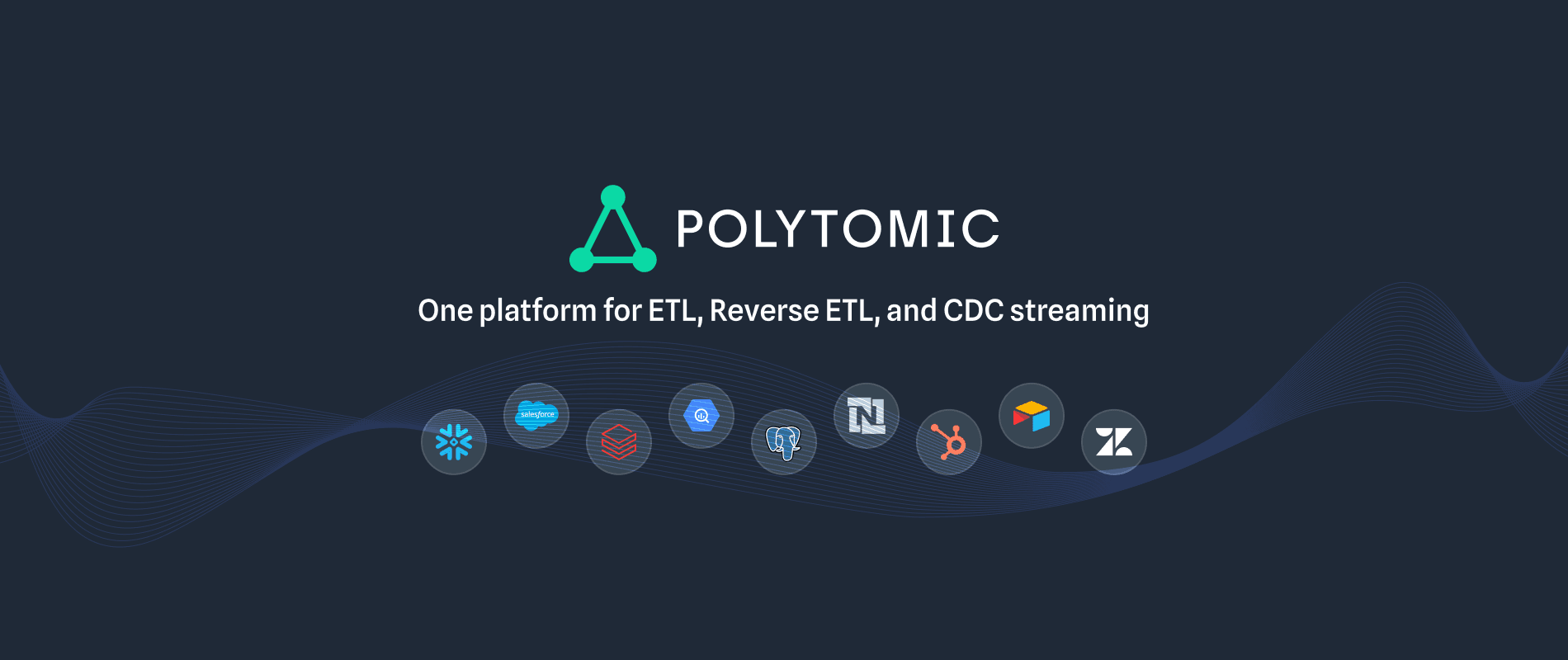
Integrate.io vs Stitch Data For ETL/ELT in 2025
Integrate.io offers a low-code interface for building ETL and Reverse ETL pipelines, while Stitch Data moves data from over 140 sources to a data warehouse with minimal IT expertise. In this article, we'll compare Integrate.io and Stitch Data to see which one is the best ETL solution.
What are Integrate.io and Stitch Data?

Integrate.io
Integrate.io is a cloud-based platform that offers ETL, ELT, Reverse ETL, and CDC capabilities. It provides a low-code interface for building and managing data pipelines, catering to various data operations.

Stitch Data
Stitch Data is a cloud-based ETL service that allows users to transfer data from over 140 sources to a data warehouse with minimal IT expertise.
In 2018, legacy data provider Qlik acquired the company, integrating Stitch Data with Talend.
Compare Integrate.io and Stitch Data

Integrate.io

Stitch Data
Key Features
- Sync to Warehouse (ETL/ELT)
- Sync from Warehouse (Reverse ETL)
- Ideal for small data scale
Key Features
- Transfer data from sources to warehouses (ETL)
- No programming needed
- SOC2 compliant
Limitations
- Limited support for SQL and coding
- Less dependable at scale
- Restricted API capabilities
Limitations
- Encountering bugs and instability when scaling
- Slow to adapt to changes in connector APIs
- Absence of Reverse ETL functionality
- Limited growth in support for new connectors
Pricing
Integrate.io's Core plan, priced at $1,999 per month, offers a fixed-fee model that includes unlimited data volumes, pipelines, and connectors, along with full platform access and a 60-second pipeline frequency.
For additional enterprise features and tailored support, custom plans are available to meet specific business needs.
Pricing
Stitch Data provides three pricing plans: the Standard Plan, which begins at $100 per month, the Advanced Plan at $1,250 per month billed annually, and the Premium Plan at $2,500 per month billed annually.
Each plan is tailored to meet varying user requirements and data volumes, with features that scale to match the needs of different users.
Reviews
Integrate.io has a rating of 4.3 out of 5 stars. Some users have noted limitations in advanced customization and occasional challenges with complex data transformations.
There are also comments about the need for more comprehensive documentation. Check out more of their reviews here.
Reviews
Stitch Data has a rating of 4.4 out of 5 stars. Users have reported concerns about the reliability of the product and the quality of customer support. Previous Stitch Data customers cite minimal new work on existing connectors, slow response times to outages, and unwillingness to build new connectors. Check out more of their reviews here.
Retool’s Director of RevOps switched from Stitch Data to Polytomic to consolidate all their bidirectional ETL jobs.
Why customers are switching to Polytomic
Polytomic unifies ETL/ELT, Reverse ETL, and database CDC into a single platform—so your data moves in and out of the data warehouse without relying on multiple vendors.
- Built for Data Teams: Consolidate your ETL and Reverse ETL needs with one solution. Polytomic handles high-throughput CDC streaming, full SQL transformations, and support for infrastructure-as-code.
- RevOps and Marketing-Friendly: Launch data pipelines to your CRM and ad platforms in minutes with an intuitive UI, plus advanced tools like live SOQL transformations on Salesforce data.
- API for AI & Product Teams: Deliver embedded customer integrations via our white-labeled native API. Polytomic supports seamless syncing into customer CRMs and data warehouses with built-in auth and integrations with the whole GTM stack.
- Enterprise-Grade: Deploy on-prem or in the cloud, manage complex orgs with multi-tenant workspaces and fine-grained RBAC permissions, and cut costs by 30–50% through platform consolidation. Backed by fast, responsive support from real data engineers.
What is Polytomic?
Polytomic
Data teams appreciate our single ETL platform with unified monitoring to centralize all data movement. We have full SQL support and first-class support for infrastructure-as-code.
RevOps and marketing teams use our no-code UI to quickly and independently set up syncs for product data to their CRM and ad platforms.
Built for enterprise scale, Polytomic can be self-hosted, handles billions of rows reliably, and has multi-tenant workspaces with fine-grained access controls.
















All the features you need, on the platform that does it all
Replace multiple vendors
Reduce costs and simplify workflows
One platform for all syncs
ETL, Reverse ETL, CDC, iPaaS, APIs, and spreadsheets
Sync only what's changed
Save on API limits and compute costs
Point and click
Select and filter your data without writing code
SQL query support
Powerful transformations when you need them
Pull from any API
No more glue code for custom integrations
Self-hosting available
Turnkey deployment to your private cloud
Enterprise-ready
SOC 2, GDPR, permissions, and audit logs
Integrated with your favorite tools
Sync any of your proprietary data from databases, data warehouses, and spreadsheets to the business systems you use.








Pricing begins at $500/month
Standard
Everything in Basic, plus:
- Sync to and from databases, warehouses, spreadsheets, apps, and APIs
- Unlimited users and connections
- Multiple sync destinations
- Live chat support with engineers
Enterprise
Everything in Standard, plus:
- On-prem deployment
- Single sign-on (SSO)
- Dedicated engineer
- Phone support
Get hands-on with Polytomic
See how easy it is to sync data to the tools your team actually uses—no code, no waiting.
